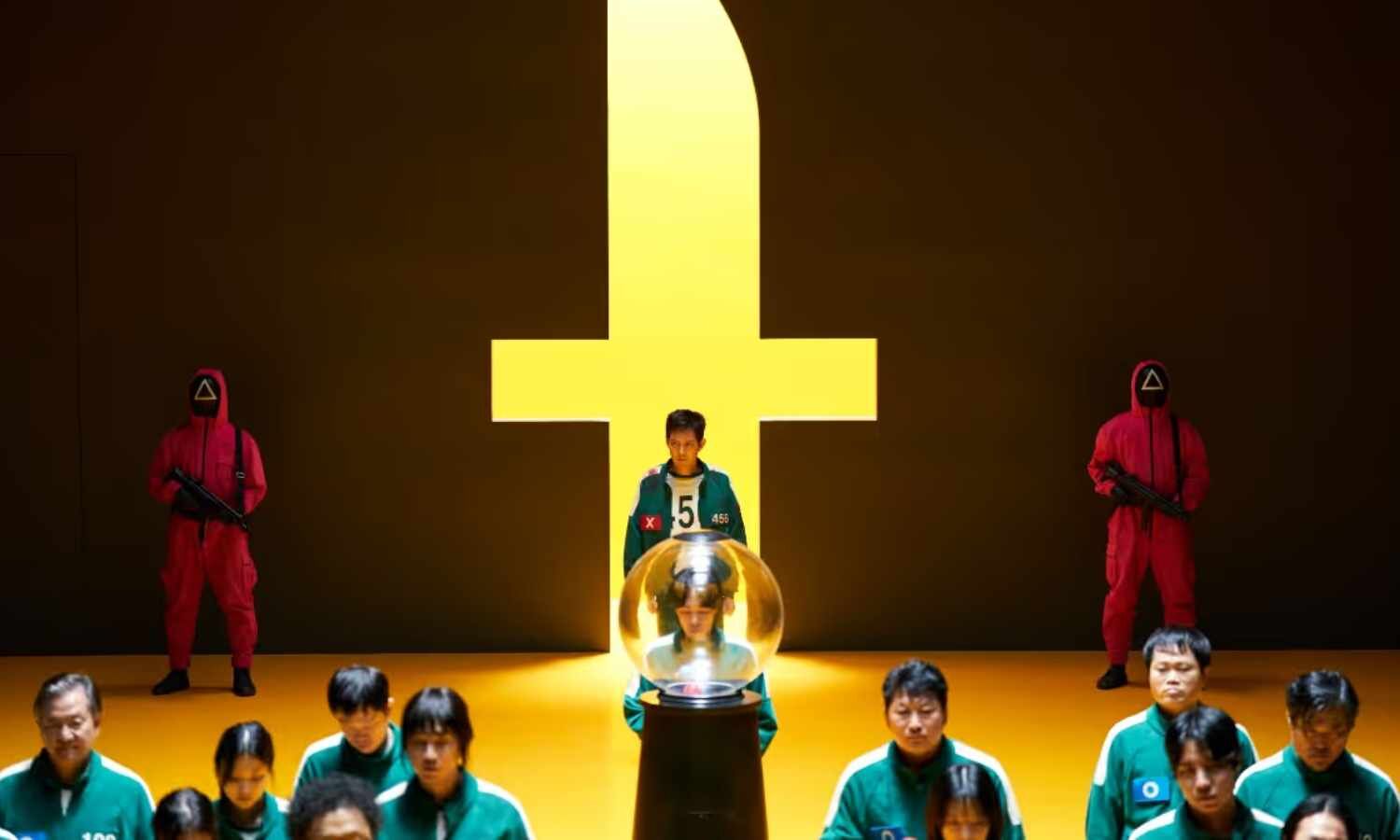Season 3 of Squid Game continues its masterful balance between high-stakes thrills and biting social critique. The show’s creator, Hwang Dong-hyuk, faces the challenge of maintaining audience intrigue without desensitizing viewers to the violence or diluting the poignant messages about class and human desperation. The season tackles this by amplifying the emotional and psychological toll on its characters while maintaining the cinematic flair that made the series a global hit.
The season premiere picks up immediately after the chaos of the previous season’s shootout. Gi-hun, now grief-stricken and guilt-ridden after the death of his ally Jung-bae, becomes a darker, more introspective version of himself. Lee Jung-jae delivers a chilling performance, portraying a man cracked by failure but still smoldering with unresolved anger. His moral struggle adds a grounding element that makes him more human than heroic.
Gi-Hun Confronts Betrayal As Hide-And-Seek Turns Into Brutal Choice-Less Survival Warfare
Tensions escalate when Gi-hun discovers that Dae-ho abandoned the group in their time of need, indirectly causing more deaths. What follows is a psychological cat-and-mouse game between the two, transforming Dae-ho from a harmless background character into a complex and desperate survivor. This shift allows actor Kang Ha-neul to shine alongside Lee, raising the emotional stakes of every confrontation.

The series hits a brutal peak with a revamped version of hide-and-seek where players are forced into direct violence. Unlike previous games that relied on split-second moral decisions, this one strips players of choice entirely, leading to raw, visceral confrontations. It highlights the show’s core lesson: that even the best intentions don’t guarantee survival or virtue. Hyun-Ju (Park Sung-hoon) delivers a standout performance, blending emotional depth with physical intensity.
Wealthy VIPs Return, Symbolic Birth Shocks, and a Hauntingly Bleak, Powerful Conclusion Emerges
Season 3 brings back the infamous VIPs, this time disguised as guards and more involved than ever. However, their exaggerated villainy and awkward dialogue undercut the show’s tone. Their scenes feel unnecessary and slow the momentum, despite one major narrative twist: the birth of a baby during the game. Though oddly animated, the baby becomes a symbolic commentary on generational trauma and systemic cruelty.
The climax features a brutal battle between Gi-hun and Myung-gi, a morally gray crypto investor and father of the newborn. While not surprising in setup, the sequence is visually stunning and emotionally devastating. Hwang resists a tidy resolution, opting instead for a bleak, resonant ending that underscores Squid Game’s core message: in a system rigged for suffering, there are no true winners—only survivors.
Season 3 reaffirms Squid Game’s place as one of Netflix’s most gripping and thought-provoking series. It mixes childhood nostalgia with adult despair in a uniquely unsettling way. While not without its missteps—mainly due to the overuse of VIPs—it remains a powerful allegory of modern inequality and desperation. As a white-knuckle psychological thriller, Squid Game continues to be unforgettable, disturbing, and deeply relevant.


